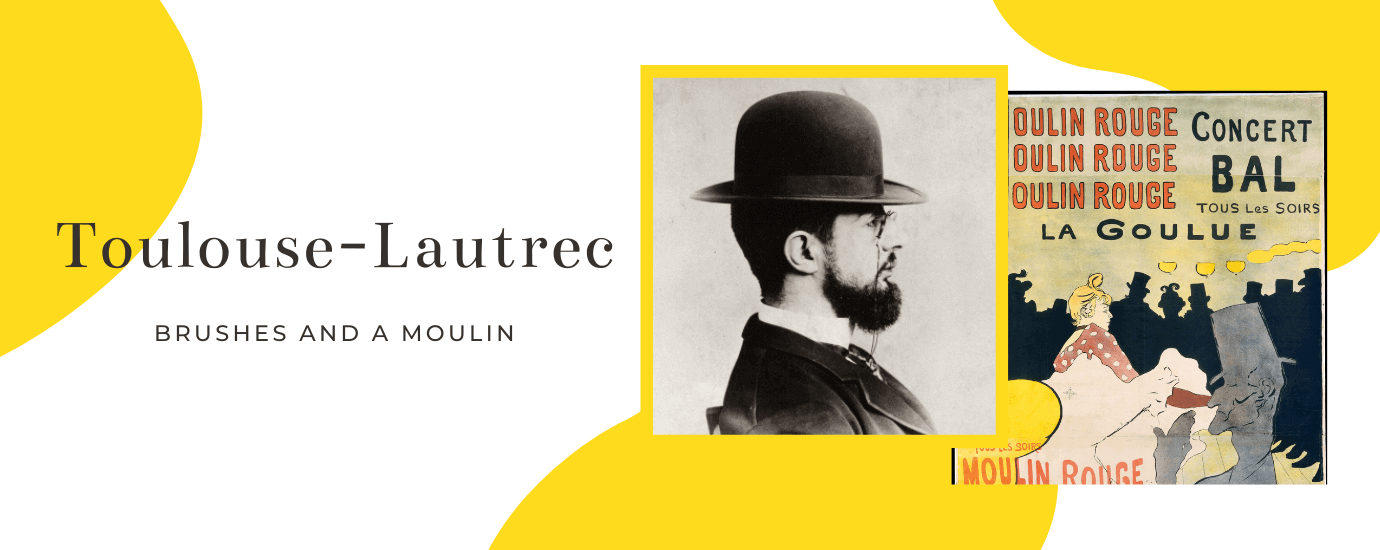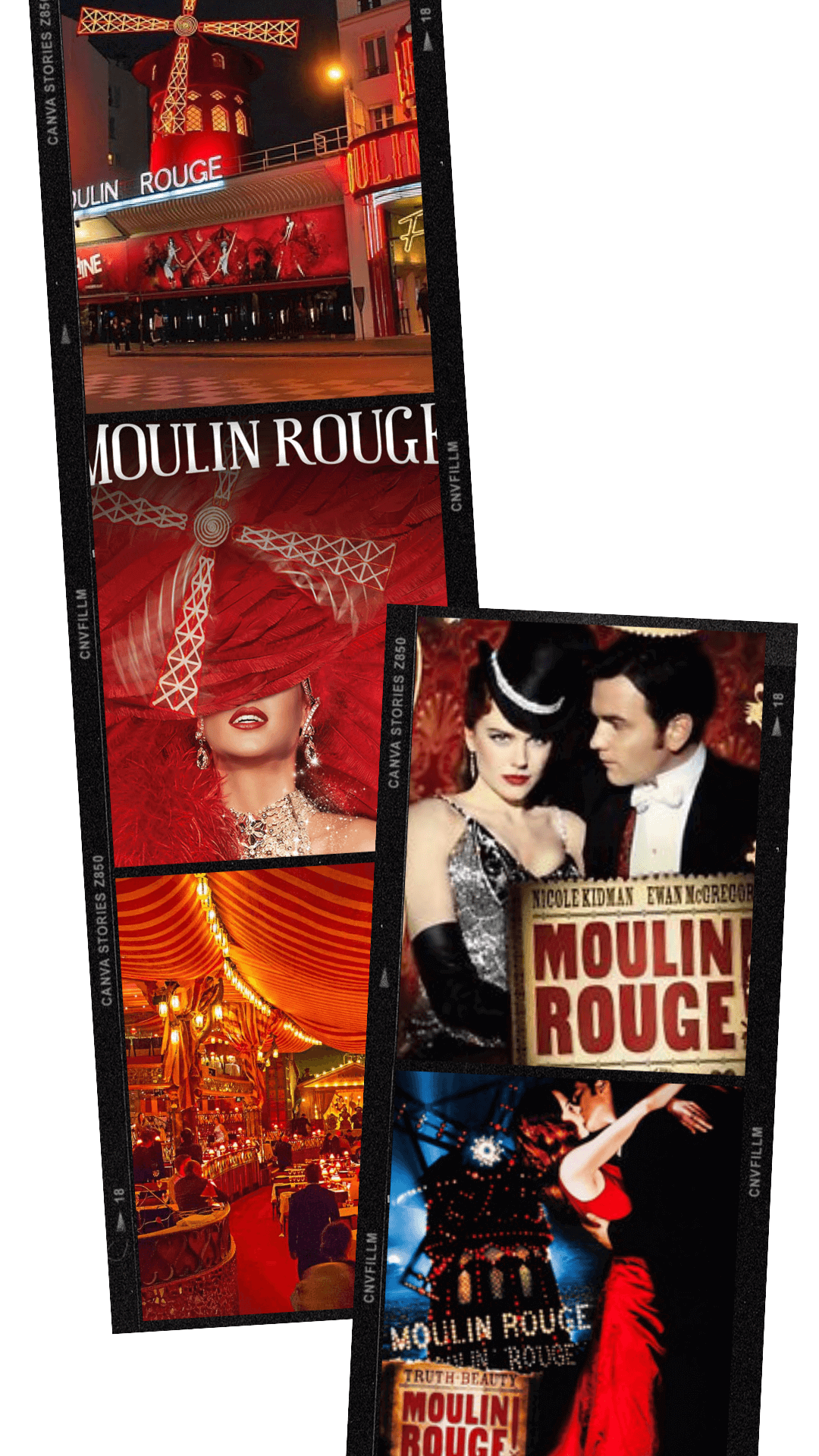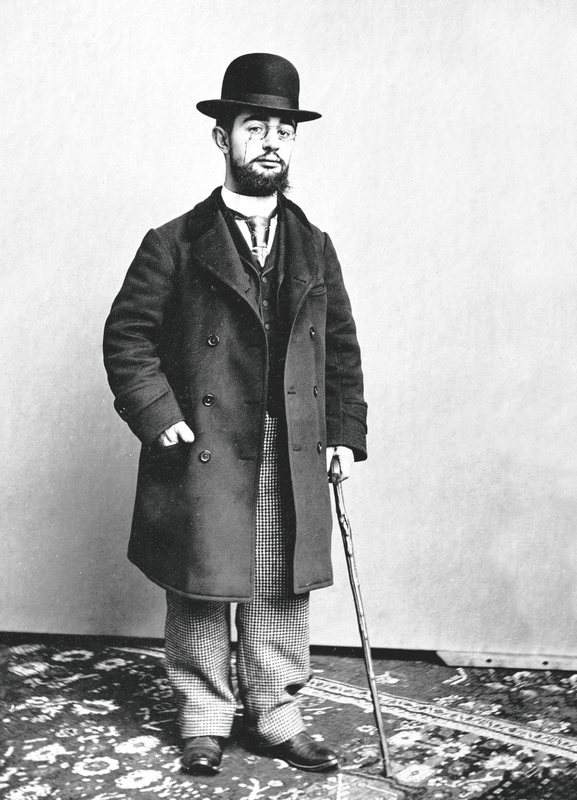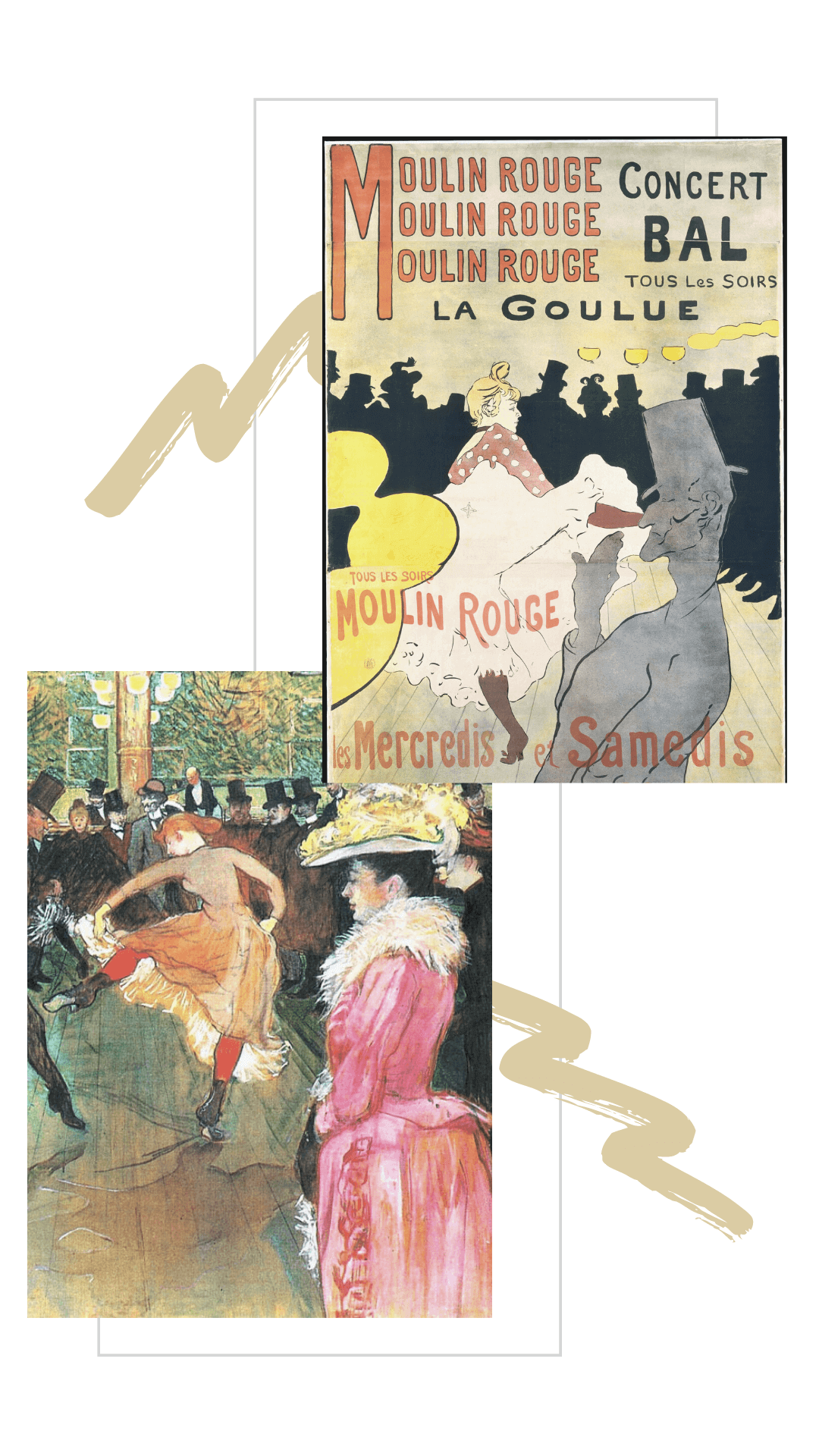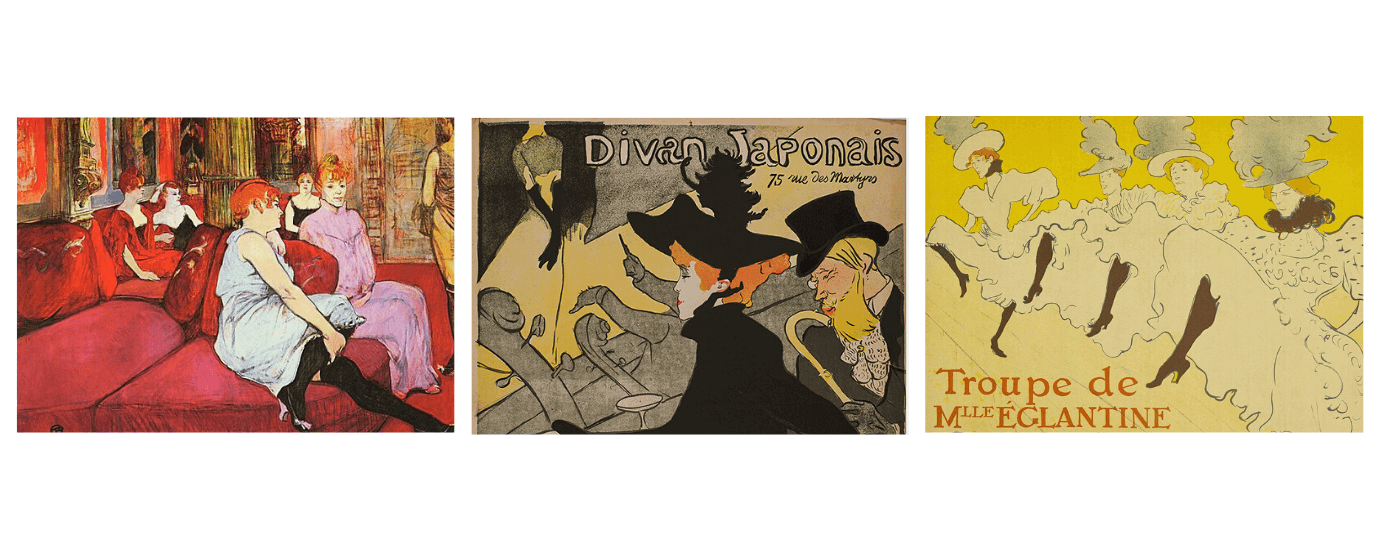WHEN FATE BECOMES INVOLVED
Henri-Marie Raymond of Toulouse-Lautrec-Monfa, was born in November 24, 1864 in Albi, of an old aristocratic family coming from the oldest provincial nobility.
His mother, Adèle Tapié de Céleyran, married his cousin Alphonse, count of Toulouse-Lautrec, emeritus horseman, passionate, like all his lineage, by hunting and riding.
Little Henri grew up between the castle of Bosc, located north of Albi in the Rouergue and the castle of Céleyran, near Narbonne.
For Henri de Toulouse-Lautrec, the year 1878 is markable: he is the victim of an accident that takes place in the living room of his native house.
The young man rises from a low chair, slips and fractures the left femur.
Less than a year later, he fractures the other leg as a result of a totally banal fall.
It should be noted that Toulouse-Lautrec suffers from a bone disease of congenital origin presumably due to the consanguineous marriage of his parents, first cousins.
Sometimes destiny puts an evil pleasure in doing things and it will guide the young man forever.
Immobilized for many months, he occupied his days by drawing and then painting, mainly horses, developing a taste widespread among his entourage, and a gift that he had manifested very young, until making it a vocation: he will be a painter.


